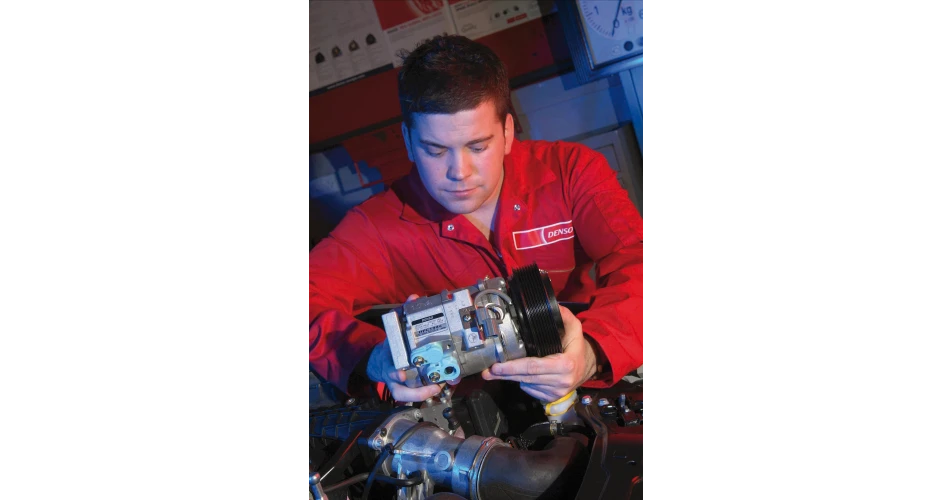Parts specialist DENSO has issued some timely A/C service advice ahead of the spring service peak.
The company says that many A/C compressors may have become faulty over the winter months and stress the importance of using the right type of refrigerant. Using the correct type of refrigerant is crucial to the air-conditioning system functioning properly, and recent legislation changes have meant that even the most experienced technician can make a mistake.
To clear up many of these regular problems, DENSO outlines some of the most frequent compressor faults, and what their causes could be:
Clear separation of two different oil substances: one transparent and the other not Problem description: No variable displacement, system blockage or compressor seizure.
Cause of failure: This will be the PA0 oil added to the refrigerant cycle. PAG oil and PA0 oil do not mix and will result in the creation of paraffin like substance. This could result in the clogging of the control valve and the refrigerant cycle.
Rubber seals are swollen and do not fit in the original position Problem description: No variable displacement and system leakage.
Cause of failure: The system was filled with the wrong type of refrigerant. It could also be due to the incorrect additives (conditioners) or flushing agents being used. This could result in the refrigerant, oil, additive or flushing agent swelling the compressor rubber seals.
Clear separation of two different liquids: one is forming droplets on the other Problem description: Excessive noise and compressor seizure.
Cause of failure: The POE oil added to the refrigerant cycle. PAG oil and POE oil do not mix properly. This could result in a high percentage of POE will reduce lubrication performance.
Discharge port is black and discoloured Problem description: A hardened or a gel like substance inside the oil or suctions port.
Cause of failure: No variable displacement, system blockage or compressor seizure. Leak stop additive or conditioner added to the refrigerant cycle. This could result in a chemical reaction of the leak stop or conditioner caused blockage of the compressor control valve and / or expansion valve.
Cracked or shattered plastic pulley Problem: Drive belt noise or drive belt disengaged.
Cause: Incorrect removal or installation of the drive belt or hitting the DL-pulley before or after installation. It may also be the result of excessive force applied to the pulley resulting in cracks or shattering of the pulley.
Since 2017 every car manufactured will be using use the new refrigerant R1234yf in the air conditioning system, as the industry attempts to make the systems more environmentally friendly. Each compressor will need a specific ND oil to prevent any failures, also depending on whether it’s using the new R1234yf refrigerant or R134a, so it is always worth checking the manufacturer’s instructions which details exactly what each compressor will need.
To help workshops, DENSO provides a wide range of A/C Compressors to workshops which are new, filled with the corresponding oil types and delivered as complete assemblies
